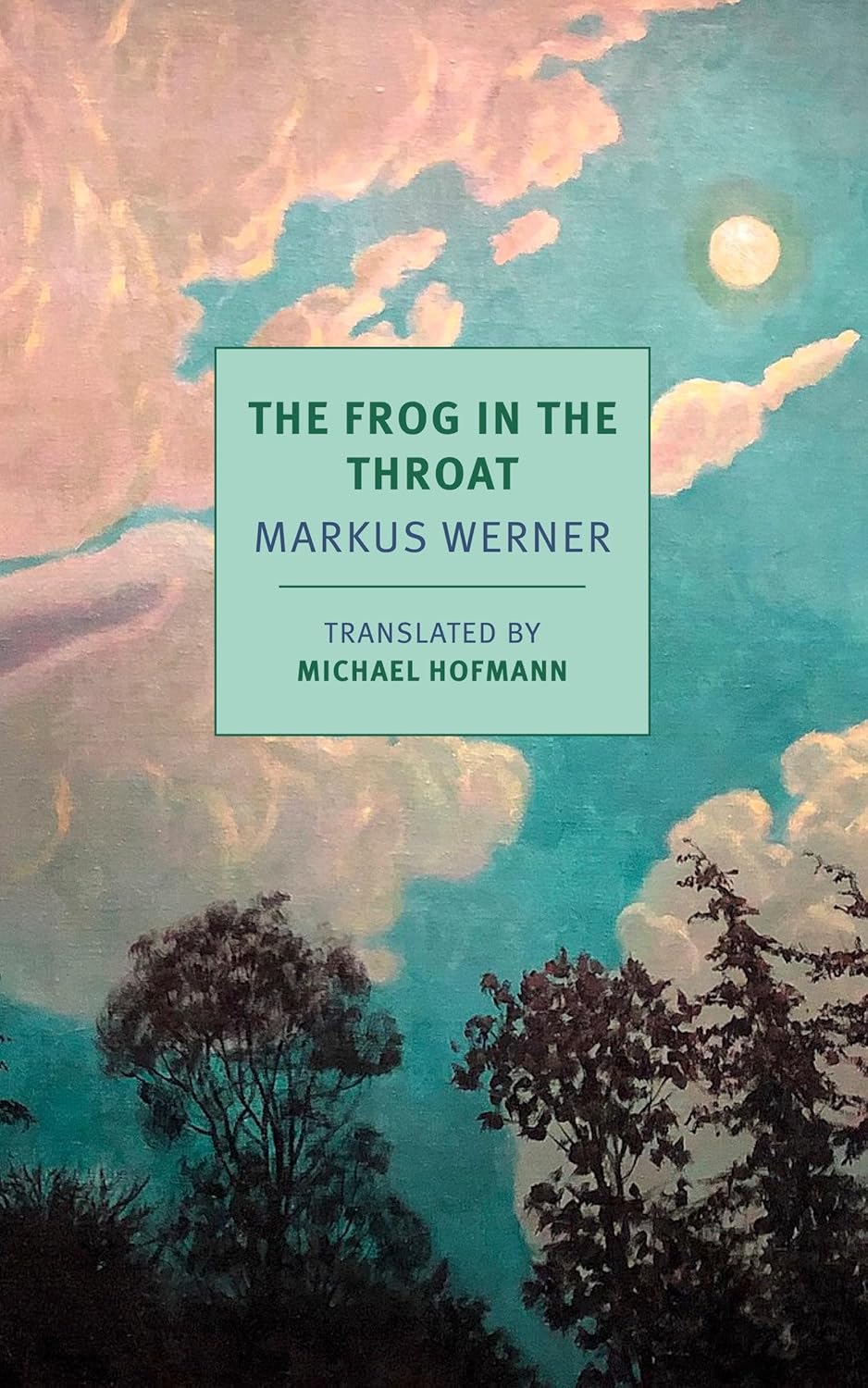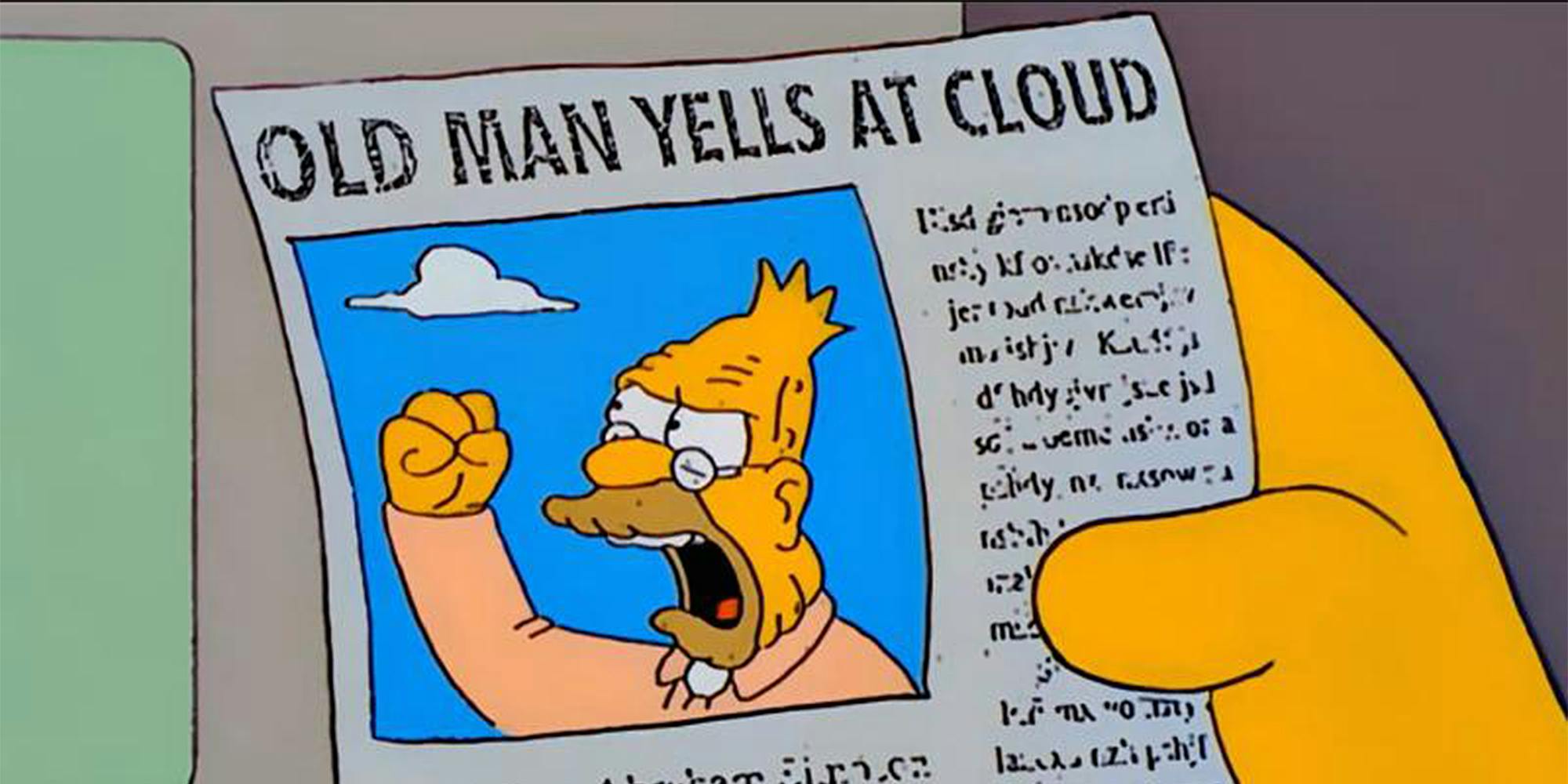by Markus Werner (1985)

2025 reads, 14/25:
He comes once a month, makes himself at home, stays for three days. In my throat, where else. Have you tried gargling, comes the well-meaning advice. Tried that, tried everything. Never less than three days. Filthy effing frog.
In 1985, Swiss writer Markus Werner published his second novel, Froschnacht (English translation: The Frog in the Throat). It is a ten-chapter novella that alternates between two main characters: Franz, an ex-clergyman who has been recently caught cheating on his wife, and his father Klemens who disowns him before his death. Franz speaks in the present, after his father passes away, and Klemens also speaks in the present, after his death, in the form of a literal frog that takes over Franz's throat once a month.
While Franz's chapters either look back on his life before his excommunication, or offer musings on his present-day emotions, Klemens' chapters start by giving a lot of "old man energy" - many of his rants fall along the lines of "these kids are conceited and spoiled" or "they misuse everything" or "they run their mouths" and on and on. A natural and immediate response to this, especially when I had just began the novel, is "what is this old man talking about." I couldn't help think of the following screenshot from The Simpsons:

But as I kept reading, the chapters with Franz just got worse and worse, and I came to the conclusion that Franz does indeed suck, and maybe that's why his father has this terrible view of the youth. Franz is barred from the church, divorced from his wife, doesn't care that he never sees his daughter, and he becomes a pretty terrible counselor as well. The translator, Micheal Hoffman, describes Werner's characters as "verbal and attitudinal terrorist[s]," which aptly fit the back and forth between both Franz and Klemens, but interspersed are bouts of comedy, melodrama, sadness, and loathing.
I mentioned before that Klemens is very old fashioned, but not in the way you may think. He worked as a dairy farmer almost all his life (in fact, many passages are about choosing a cow that will yield plenty milk, and he will relate almost any situation to dairy farming), and essentially values hard work. In other words, what you put in is what you get out. But he's also skeptical of everything else - very anti-capitalist, anti-religion, really just anti any type of large organization. His monologues towards the beginning of the book, which I mentioned were about "the youth," shift more and more towards the political sort as the book moves on. An amazing passage in Chapter 8 details Klemens setting foot in a new shopping center at his old age, and being absolutely repulsed by the consumerism rampant in it. He takes a look at filled shopping carts, at people taking more than they need, essentially describing the tragedy of the commons all from a quick view of the shoppers.
Whoever has lived for fifty, sixty, or seventy years and can't get his head around who's in charge of the planet and who's conniving to blow it up should have four more holes drilled in his butt instead of the eyes and ears he doesn't need and doesn't use.
Many passages work great as monologues, from either Franz of Klemens. Franz will give you the self-loathing, moody passages, while Klemens will rile you up with his discussions on how society should behave. There are parts of this where I actually forget that Klemens is supposed to be a frog in Franz's throat - but Klemens does his best to respond to the events of Franz's previous chapter.
Overall, this was a great piece of work from an author I had never heard of, which seems to be the New York Review Book's wheelhouse. It was dry, humorous, and a perfect depiction of Weltschmerz.
...I bonded deeply and trustingly with the Almighty. But He saw everything, including also my disobedient core. I had inadvertently recruited a second master.